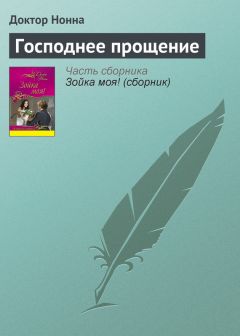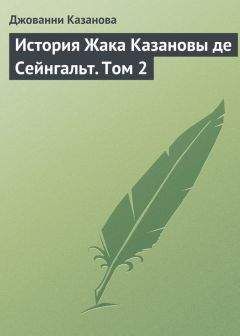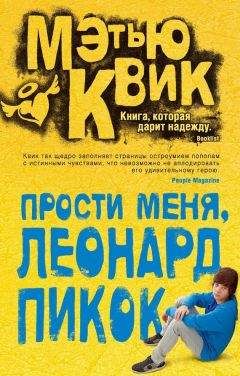Stuart Kaminsky - The Dog Who Bit a Policeman
“The father or the son?” asked Iosef.
“Neither,” said Zelach.
“Understandable,” said Iosef, starting to walk down the road.
“I think it might be reasonable to add the mother to a list of the unlikable.”
“Ah, look, they have a car,” said Zelach. “He could have offered us a ride.”
“That would have been polite,” said Iosef with a smile. “But it is a nice day and this promises to be a relatively easy assignment.”
“Perhaps,” said Zelach, slouching along at the younger man’s side, “but this morning my mother got out of bed and accidentally touched her left foot to the floor instead of her right. She says I will have bad luck and should be careful.”
“You believe that?”
“Of course not,” said Zelach without conviction. “We shall find Deputy Pleshkov.”
“With luck we will find him during the day,” said Iosef. “If not, prepare yourself for little sleep tonight.”
When they were a few hundred yards down the road and had passed both newly constructed large dachas and crumbling little cottages, a Mercedes-Benz pulled up next to them and Ivan Pleshkov, who had changed into a plain white shirt with short sleeves, said through the open window, “You don’t have a car?”
“No,” said Iosef.
“I’ll give you a ride to Moscow,” he said. “I’m going there anyway. Get in.”
“Maybe your mother was wrong about which foot she touched to the floor first,” said Iosef, opening the back door.
Zelach didn’t think so.
Chapter Three
Rostnikov had returned to Petrovka and immediately reported to Yaklovev.
Pankov, the sweating dwarfish secretary who had survived Colonel Snitkonoy’s promotion and now served as secretary to the Yak, had ushered Rostnikov into the director’s office, as was his standing order. The only requirement was that the director was alone and that Pankov announced that Rostnikov was there to see him.
Pankov lived in constant fear of his superior. The slightest sign of disapproval or possible problems sent the clean-shaven little man of indeterminate age into a sweat, regardless of the heat or lack of it in Petrovka.
The meeting had been relatively brief, with Rostnikov standing in front of the desk of the Yak, who listened carefully to the early report on the new cases.
“Another report by the end of the day, or earlier if there are changes,” said the Yak, sitting erect. “I want the names of those involved in the dogfights, and I want Congress Member Pleshkov found as soon as possible-and I would like it done quietly.”
“I understand,” said Rostnikov, noting that the Yak did not seem particularly interested in the naked mobster found in the river.
“I’m sure you do,” said the Yak, looking up. “If you have more to report, you may sit. If not. .”
“The director of the forensics laboratory may be coming to you with a complaint about my turning his men away from a crime scene this morning,” said Rostnikov.
“The corpse in the river?”
“Yes,” said Rostnikov. “I have Paulinin examining the body.”
“Good,” said Yaklovev. “I will take care of it with an apology and by being my usual charming self. Anything else?”
“No,” said Rostnikov, and the Yak resumed the reading of a thick report before him, a clear sign of dismissal.
Rostnikov left the office, nodded at Pankov, and went to the stairs.
The relationship between Porfiry Petrovich and Director Yaklovev was completely symbiotic and beneficial to both men, though the Yak did not like Rostnikov and Rostnikov did not like the Yak. However, both men trusted each other and knew that, to a great degree, their futures depended on that trust. The Yak was corrupt but he was a man of his word, and Rostnikov was reasonably confident that when the time inevitably came that the director felt he had to betray his chief inspector, the Yak would inform Rostnikov that it was coming.
Instead of going back to his office, Rostnikov went down four flights. The last two flights were underground. There was no one in the corridor, so Rostnikov leaned against the wall, taking all of his weight on his good leg. Four flights down had resulted in a slight soreness where the artificial leg connected to Rostnikov’s leg just below the knee.
“Leg,” he said. “We have been through far worse. It is time to stop grieving over the loss of an old friend who had to be dragged around like a child’s wagon. Ah, that’s better.”
Rostnikov opened the door to Paulinin’s laboratory and entered to find Emil Karpo watching Paulinin carefully examine the white body, which lay upon the table. The body had been cut from neck to groin and peeled open, exposing the organs, only one of which Paulinin had yet removed. The scientist was slicing the corpse’s liver on what looked like a restaurant meat slicer.
“Kofyeh, coffee?” asked Paulinin, white surgical gloves reddened with blood.
“I thank you, but I have just had several cups,” said Rostnikov.
“Nyet spahssebah, no, thank you,” said Karpo.
Paulinin’s eyes didn’t leave the mechanism, which slid back and forth with a smooth metallic sound. Rostnikov and Karpo stood silently watching till Paulinin had had enough and turned off the machine. He turned to Rostnikov, eyes wide, smile small, and said,
“New toy, the slicer. You know what a pathology slicer costs?
Never mind. You can’t get one even if you have the money. But this is better. I got it for some of those new rubles. I can’t be bothered keeping up with what they are worth. At least the new ones are bright. Where was. . oh, the slicer was purchased from a restaurant, the Cosmos on Gorky Street. It was cheap and it works better than the surgical ones I’ve seen. It slices just as thin and if you keep the blade sharp, as I do, there is no tissue and little cell damage.”
“Interesting,” said Karpo.
“Yes, and had you given the corpse to the bumblers who pass themselves off as pathologists, they would have concluded that our dead friend was told to strip, shot to death in the middle of the night on the riverbank, and shoved into the water.”
“He wasn’t?” asked Rostnikov, knowing that the man wanted, needed appreciation.
“He was not,” said Paulinin, rising and putting his right hand on the shoulder of the corpse. “Our friend drowned. He is a quite amazing creature. He was shot three times, any wound of which would have caused his death in a short time, except the wound to the head. That went around the cranium and lodged at the back of his brain. Relatively little damage. His lungs were filled with water, but not water from the Moscow River. No, the water in his lungs is clean and filled with chlorine. He died in a swimming pool after he was shot. See these bruises on his rear and back? Whoever did this was very strong, or it was more than one person. Our friend here weighed about two hundred and forty-eight pounds. He was dead weight and in a pool would be even more of a dead load.”
Paulinin raised the body so that the two detectives could see.
“Those occurred after death. Whoever pulled him from the pool put him in some kind of vehicle-a cart, a wheelbarrow-something wooden and painted white. There are splinters, small but de-tectable. The bruises came during transport of our friend. And though the traces are almost infinitesimally small, when he was transported he was covered by something made of blue terry cloth, probably an oversized bath towel. Pieces of the material are in the blood and around the edges of the gunshot wounds. There was probably a lot more, but the corpse was in the river for seven or eight hours before we pulled him out. He died last night, probably late. Next. .”
Paulinin released the corpse, which slumped back with a thump, removed his gloves with a snap and threw them into an almost full garbage can.
“Next,” he said, “the bullets. Perhaps the most interesting part of what appears to be a puzzle. They are forty-four caliber, fired from a well-preserved but very old weapon, which suggests. .?”
“That he was probably not shot by a Mafia member, or that, if he was, the use of such a weapon carries some specific meaning,”
said Rostnikov.
“Precisely,” said Paulinin, looking down at the face of the corpse. “Now you must leave. I have to talk with our friend’s liver and other organs. I’ll tell you more soon.”
Rostnikov and Karpo went into the empty corridor and let the heavy door to Paulinin’s laboratory slam shut.
“The dead man is Valentin Lashkovich,” said Karpo. “He is known as Shtopahr-‘Corkscrew’-a simple-minded killer for the Tatar Mafia. He is suspected of at least nine murders, but has been arrested for only one and released when the judge said there wasn’t sufficient evidence.”
“But there was?”
“Yes,” said Karpo.
“So, many people may have wanted Lashkovich dead?”
“Many,” said Karpo. “The obvious conclusion, were it not for the bullets used to kill him, is that he was killed as part of an on-going war between the Tatars and the Chechins. Three others, two Chechins and one Tatar, one shot in a hotel health club, one in a hotel exercise room, and one in a hotel swimming pool.”
Rostnikov knew this but listened attentively and then said, “And the weapon used?”
“The bullets were neither examined nor kept,” said Karpo. “The deaths were ruled as casualties of a Mafia dispute-a dispute, I wish to add, that may well grow larger when the Tatars learn of this murder. If they do not already know.”
“So, Lashkovich was murdered in a swimming pool,” said Rostnikov. “But why was his body thrown in the river?”
“To disassociate the crime from yet another hotel health facil-ity,” said Karpo.
“Yes,” said Rostnikov. “Which suggests?”
“That the killer is somehow associated with hotel health clubs.”
“Or that such a location has special meaning.”
“And then there is the question of why such an old weapon was used. Definitely not a Mafia gun of choice.”
“It is intriguing, Emil Karpo.”
“The Tatars will ask for the body,” said Karpo.
“And when Paulinin is finished with it, they will have it. And you and I, Emil, will attend the funeral.”
Karpo nodded.
“Meanwhile, find out where Lashkovich lived, and swam,” said Rostnikov. “You know what to do. I’ll talk to. . who is the leader of the Tatars?”
“Casmir Chenko,” said Karpo. “He is known as the Glahz-the Eye. He wears a patch to cover the open socket where a rival gang leader destroyed the eye with his thumb when Chenko was still a young man. The rival is now blind and hiding in Estonia.”
“Perhaps you should see Chenko and I should find out about Lashkovich?”
“I believe you would deal with Chenko much more professionally than I,” said Karpo.
Rostnikov nodded. Since the death of Mathilde Verson, shot to pieces in the crossfire of two Mafias, Karpo had found a new mission in his life: the eventual destruction of all the Mafias in Russia. It was a task he well knew might not be accomplished till years after he was dead, if ever.
“Where do you suggest I look for Casmir Chenko?” asked Rostnikov.
“The Leningradskaya Hotel,” said Karpo. “Leave a message at the desk. I do not know where he actually resides, but many of his people live there and go to the hotel casino. If you wish, I will discover where he lives. It may take me several days.”
“That won’t be necessary. At least not yet. Find the hotel or health club, Emil Karpo.”
There was nothing more to say. Both men were well aware that finding a solution to the murders was crucial to the avoidance of a bloody war on the streets of Moscow. Of course, they might well discover that these murders were but the first step before the coming battle. As much as such a battle might make a slight dent in the gang population of Moscow, it might take a few, or perhaps more than a few, innocents in addition.
Rostnikov made his way slowly back to his office while Karpo went in search of Lashkovich. When he got to the office, Rostnikov removed his leg, put it on his desk, and reached for his phone.
“My twelve-year-old daughter can make a better corner kick than that,” Oleg Kisolev shouted.
Kisolev was a compact man wearing a gray sweatshirt and gray shorts. Kisolev had powerful legs and thighs and a look on his flat face, dominated by an often-broken nose, that suggested he was not a particularly brilliant human specimen. It was an unfair conclusion, only partially supported by the conversation that was taking place.
“Scheplev,” Kisolev shouted. “Go on the other field and kick one hundred corner kicks. Pushnik, go with him in the goal.”
The other players paid little attention when Scheplev and Pushnik walked off toward the other field. Two other players sitting on the sideline put on blue shirts and replaced the departing players.
“Play,” shouted Kisolev, blowing his whistle.
The red-shirted team took the ball downfield.
Iosef Rostnikov and Akardy Zelach had introduced themselves and stood watching and waiting while Kisolev ignored them.
“Coach Kisolev,” Iosef said gently to the coach, who was concentrating on the weaknesses of his players.
“Menchelev,” he shouted in exasperation, “you’re too far upfield.
Their line will run right past you. Back up.” Kisolev shook his head. “Menchelev is a great fullback, but he thinks he can run like a track star. I-”
“We must talk to you now,” said Iosef.
Kisolev motioned Menchelev back even farther. Iosef reached over and grabbed the whistle Kisolev was about to blow. The whistle was on a cord around the coach’s neck. Iosef tugged at the whistle and Kisolev turned.
“What the hell you think you’re doing, you son-of-a-bitch bastard?” said Kisolev, pulling the whistle from Iosef ’s hand. Red faced, he clenched his fists and looked into Iosef ’s eyes.
Iosef smiled and said, “I suggest you smile and we talk, or you might well be spending a few days in a local police lockup. Do you know what they are like? No? Well, you don’t want to know.”
Kisolev looked at Zelach, who had no expression on his face, though his left eye seemed to be slightly glazed over.
“I have important friends,” said Kisolev.
“You have one important friend,” said Iosef. “And we’re looking for him. Yevgeny Pleshkov.”
Kisolev turned to the field, blew his whistle, and shouted,
“Break. Get some vahdi, water. Don’t leave the area.”
“Thank you,” said Iosef.
“If you weren’t a policeman, I’d. .”
“After we talk,” Iosef said, “I’ll be happy to go behind the stands and give you the opportunity.”
Kisolev looked at the young man, who was only slightly taller than he, and saw a new smile that made it quite clear that the good-looking policeman was not only unafraid but actually welcomed a chance at him. Kisolev caved.




